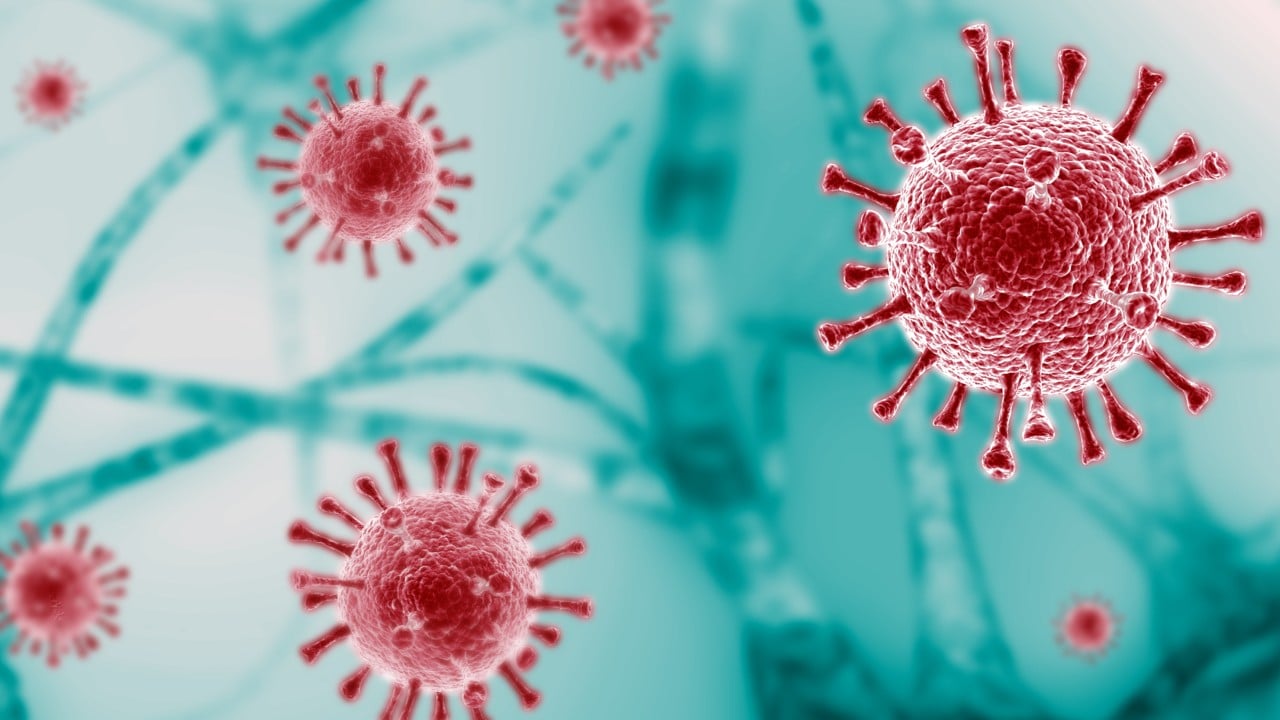
STOMACH CANCER – SYMPTOMS, CAUSES AND TREATMENT
Stomach cancer, also known as gastric cancer, is the fourth-highest cause of cancer deaths worldwide, and 17th-most common cancer in the UK.
According to Cancer Research UK, cases of stomach cancer in the UK have decreased by almost a third (31 per cent) in the last decade. As a result, there’s less awareness about the most common signs and symptoms.
Guts UK, the UK’s only charity funding research into the digestive system, reports that many of the 6,500 new cases a year are picked up at a late stage, when the cancer is advanced and can’t be cured. But the good news is that more than half of stomach cancers are preventable.
The following signs are the ones to look out for.
Jump to:
- What is stomach cancer?
- Types of stomach cancer
- Stomach cancer symptoms
- When to see a doctor
- Causes of stomach cancer
- Can you prevent stomach cancer?
- Risk factors for stomach cancer
- Diagnosis and tests
- Treatment
- Living with stomach cancer
What is stomach cancer?
The stomach, a hollow organ located at the top of the abdomen, holds the food and drink that we eat, and also produces acid and enzymes to help break down food and aid digestion. The cells that line the stomach are continually being replaced. This happens with no problems most of the time, but sometimes abnormal cells are formed, which can turn cancerous.
Types of stomach cancer
The most common type of stomach cancer is adenocarcinoma, which accounts for 95 per cent of all cases. Adenocarcinomas form inside the inner stomach lining and can develop in any part of the stomach. In the UK the most common location is the cardia, which is at the top of the stomach, just below the oesophagus.
Other, less common, types of stomach cancer are:
- Gastro-intestinal stromal tumours (GISTs), which develop in the stomach wall
- Neuroendocrine tumours (NETs), which start in the stomach’s hormone cells
- Non-Hodgkin lymphoma, which starts in the immune system cells in the stomach
Stomach cancer symptoms
“Overall, stomach cancer is aggressive and, unless it’s caught early, patients can have a poor prognosis,” explains Dr Irene Chong, a consultant clinical oncologist at the Royal Marsden NHS Foundation Trust, which is part-funded by the Royal Marsden Cancer Charity.
“The problem is that, in the early stages, there can be no symptoms at all, or they can be easy to ignore. For this reason, it’s important to be vigilant and talk to your GP if you experience the following signs.”
What are the first signs of stomach cancer?
Many of the early signs of stomach cancer, such as nausea or being sick, are common – and usually not due to stomach cancer. However, it’s best to talk to your doctor if you experience any of the following symptoms:
- Feeling full and uncomfortable, even after eating a small meal
- Heartburn or acid reflux, sometimes accompanied by a cough, hoarseness or bad breath
- Indigestion, including burping a lot after meals and feeling bloated underneath the ribs
- Upper abdominal pain above the belly button or behind the breastbone
There are five stages of stomach cancer, from stage 0 to 4, and it can take several years to develop. It’s often not diagnosed until stage 3 or 4, as many people don’t have any significant symptoms until this point, so don’t realise that anything is wrong.
“Over time, even mild symptoms can develop into a chronic condition which can lead to cancer,” says Dr Chong. “There are other causes for these symptoms and they will not usually be caused by stomach cancer, but it’s best to be checked out.”
When to see a doctor
Talk to your GP if you develop any of the symptoms above and they persist for more than three weeks, particularly if they are accompanied by any of the following:
- Unexplained or unintentional weight loss
- Unusual tiredness
- Difficulty swallowing
- Blood in your stools or vomit
- A lump at the top of your abdomen
Causes of stomach cancer
- The bacterium H. pylori
- Inflammatory changes
- Long-term acid reflux or gastritis
At least four in 10 cases of stomach cancer in the UK are caused by the bacterium H. pylori. This causes a common stomach infection which, if left untreated, causes inflammatory changes to the stomach lining which can lead to cancer. This bacterium can be passed through contaminated water or food, or by person to person through direct contact with saliva, vomit or stool.
“The reason why the incidence of stomach cancer has fallen greatly in the UK is because we pick up H. pylori infections early and treat them completely,” explains Dr Chong. “There is a higher incidence in developing countries where H. pylori is not picked up or treated as thoroughly, and cramped living conditions means it’s easier to pass on the bug.”
Inflammatory changes can also be caused by the autoimmune condition pernicious anaemia, which causes the immune system to attack cells in the stomach, so the body is unable to absorb vitamin B12. The exact cause of pernicious anaemia is unknown, but it’s more common in women around the age of 60, people with a family history of the condition, and those with other autoimmune conditions.
People with severe, long-term acid reflux, known as gastro-oesophageal reflux disease (GORD), also have an increased risk of developing stomach cancer, along with people who have suffered from long-term stomach inflammation, known as gastritis.
Dr Chong explains: “Chronic gastritis over a long period of time can lead to atrophy of the stomach and changes within the cells that can be precancerous and eventually lead to cancer.”
Can you prevent stomach cancer?
The good news is that more than half of all stomach cancers (54 per cent) are preventable because they’re linked to lifestyle or environmental factors, such as diet, smoking and H. pylori infection.
Although there’s no national screening programme, if you are at high risk of stomach cancer or have worrying symptoms your doctor may refer you for tests. These include an ultrasound or a type of endoscopy called a gastroscopy, where a camera attached to a thin tube is inserted into the mouth and down into the stomach so that a doctor can check for abnormalities and take biopsies.
What is the most effective way to prevent stomach cancer?
The best method to prevent stomach cancer is to test for H.pylori, which involves a urea breath test. This is routinely performed before an endoscopy, and involves having a drink which contains urea, a chemical which is broken down by H.pylori. Your breath is then checked afterwards.
Alternatively, your GP may request a stool sample which can be tested for the bacteria. If H.pylori is found, it can be treated with antibiotics. It’s important to note that not everyone with H.pylori will develop stomach cancer.
Risk factors for stomach cancer
- Smoking
- Obesity
- Bad diet
As with other types of cancer, there are some lifestyle-related risk factors to be aware of. “About 15 per cent of stomach cancers are caused by smoking,” explains Dr Chong. “We also know that smoking makes treatment of H. pylori infection less effective.”
Some studies suggest that a high alcohol intake increases the risk of stomach cancer, and an increasing body of research has identified a link between obesity and an increased risk of gastro-intestinal cancers. Dr Chong adds: “A diet that is low in fruits and vegetables, and high in salty, smoked and pickled foods, may increase the risk.”
Nicola Smith, a senior health information manager at Cancer Research UK, says: “It’s not always clear what causes stomach cancer, but there are ways you can reduce your risk, such as by not smoking and keeping a healthy weight.”
There are some risk factors that we have little or no control over. For example, people who have close family members who have had stomach cancer have an increased risk of developing stomach cancer themselves.
“About 10 per cent of all stomach cancers have some kind of hereditary component,” explains Dr Chong. “The most common, which accounts for about 3 per cent of all gastric cancers, is called hereditary diffuse-type gastric cancer (HDGC). This is caused by a mutation in the CHG-1 gene, so it’s important to take a full family history and identify whether a person is at higher risk, as this will strengthen the case for being referred for other investigations.”
Overall, data from Cancer Research UK indicate that stomach cancer is more common in men than women, and half of cases occur in people over the age of 75. It’s most likely to affect people aged between 85 and 89.
Diagnosis and tests
These may include:
- Endoscopic examination
- Biopsy
- CT scan, PET scan or MRI
If you visit your GP with any of the symptoms mentioned earlier, expect your doctor to feel your stomach to check for lumps, then order a blood test.
“This will show if there’s any anaemia, which may indicate that there is bleeding in the stomach,” explains Dr Chong.
“After that, a patient would be referred to a gastroenterologist, as the only way that stomach cancer can be diagnosed is by having an endoscopic examination. This means we can see where a cancer is located and what it looks like – because it does have a characteristic appearance. Biopsies are also taken, and checked under a microscope. This is the only way that a diagnosis can be absolutely confirmed.”
At this point, more scans will be needed – such as a CT scan, PET scan or MRI – to see if the cancer has spread.
Treatment
Broadly speaking, the way that stomach cancer is treated depends on how advanced it is and whether it is likely to be curable.
Endoscopic mucosal resection (EMR) and endoscopic submucosal dissection (EDD): If a cancer is caught early enough, the cancer can sometimes be cut out endoscopically. This means there is no need for a major abdominal operation.
Surgery: Depending on the location of the cancer, and whether it has spread, there are three different operations that may be performed:
- An oesophago-gastrectomy is performed when the cancer is at the junction of the oesophagus and stomach. During surgery, the top part of the stomach is removed, and the lower part is joined to the oesophagus
- A partial gastrectomy involves the removal of the bottom part of the stomach, before the upper part is reconnected to the small bowel
- A total gastrectomy is a major operation which is performed when the cancer is located in the upper part of the stomach. The entire stomach is removed, and the oesophagus is connected to the small bowel.
Patients may also be advised to have chemotherapy and/or radiotherapy before or after surgery.
“Some patients may also be tested to see if they would be suitable for targeted therapy or immunotherapy,” says Dr Chong. “Slowly but surely we are building on additional treatments that can give patients more hope. With immunotherapy, patients who respond well respond for a really long time – and might even have complete responses.”
If the cancer has progressed, and is not thought to be curable, doctors will consider a range of treatments including radiotherapy and chemotherapy, which can reduce how quickly the cancer grows and treat some of the symptoms.
If the cancer is causing a blockage, in some cases a stent is inserted into the stomach during an endoscopy, so that food and fluids can pass through more easily.
Living with stomach cancer
In some cases, people living with stomach cancer will require a feeding tube to help maintain their weight. Even if their cancer is believed to be curable, treatment often involves a major operation with a long recovery time – and patients will have to change the way they eat for good.
“Very soon after surgery patients will be seen by a dietitian, who will explain that they need to eat little and often,” explains Dr Chong. “They will need support to get the balance right, so that they can adjust to this new pattern of eating and maintain a nutritious diet.”
Recommended
IBS, colitis or Crohn's? When to see a doctor about your stomach ache
2024-05-02T12:01:50Z dg43tfdfdgfd











